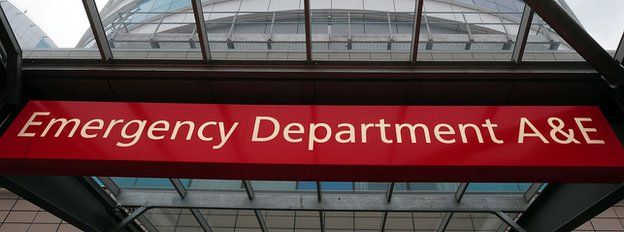
The NHS in England could be losing up to £5.7bn a year to fraud from its £100bn budget, a report suggests.
A review - led by former NHS anti-fraud boss Jim Gee - highlighted fraud by pharmacists, dentists, GPs and patients.
Among the areas it found to be affected were procurement, prescriptions, registration of patients and payroll.
The government said the report was "highly speculative" and "full of inconsistencies".
To work out how much fraud is being committed, the review had to rely on estimates as well as detected fraud.
It said the level of fraud was likely to be between £3.7bn and £5.7bn a year, out of a budget of more than £110bn.
Among the scams highlighted were dentists claiming money for NHS care they did not carry out and GPs falsifying records for extra payments.
To illustrate the scale of some of these cases, it highlighted the jailing of a Birmingham dentist in 2012 after she stole £1.4m from the NHS.
| The biggest sources of fraud in the NHS | ||
|---|---|---|
| Area | Scams used | Estimated value per year |
| Payroll | False allowance claims and incorrect qualifications used | £555m - £1.49bn |
| Procurement | Overcharging for goods and services or under-delivery | £1bn - £1.27bn |
| General practice | Claims for services not provided and for ghost patients | £348m |
| Patients | Claim for free prescriptions, dental care and optician services they are not entitled to | £304m |
| Dentistry | Claims for dental work not carried out | £121m - £137m |
| Pharmacy | Staff claiming for more drugs than actually dispensed or for services not provided | £83m - £96m |
Patient fraud identified included wrongful claims for free prescriptions, dental and optician care.
But the biggest area of fraud was estimated to be payroll, at between £555m and £1.49bn - although the report said this mainly consisted of lots of small-scale cases.
The report warned fraud was not being given the attention it deserved and it was now one of the "great unreduced healthcare costs".
Mr Gee, who carried out his work for PFK Littlejohn accountants, said: "There is a vast, honest majority who find fraud against the NHS to be completely unacceptable. However, there is also a dishonest minority who can cause significant financial damage.
"The best way of stopping this is not to wait for fraud to happen and then act after losses have been incurred, but to proactively deter and prevent them. Fraud is a cost to be measured, managed and minimised like any other."
Analysis
 PA
PA
By Hugh Pym, health editor
There is nothing new about fraud in the NHS. The scams are all too familiar - whether it's health service managers purchasing hospital supplies and taking backhanders or corrupt GPs claiming they have patients who don't actually exist.
But the report's authors argue that, even though the NHS's fraud problem is no worse than in other healthcare systems, the need for a crackdown is as urgent as ever because of the intense financial pressure on the NHS and the need to make efficiency savings.
They accuse the government of failing to carry out a detailed audit of the extent of health service fraud. The Department of Health said it didn't recognise the figures, but there has been no official denial that there is a problem that needs fixing.
Fraud officers work in each local area while at a national level, fraud work is co-ordinated by NHS Protect.
A Department of Health spokesperson said: "We do not recognise the figures in this highly speculative report which is full of inconsistencies.
"We are determined to stamp out fraud in the NHS through better information sharing to prevent and deter fraud and we are working with NHS Protect on crime risks and trends to do even more in the future."



No comments:
Post a Comment